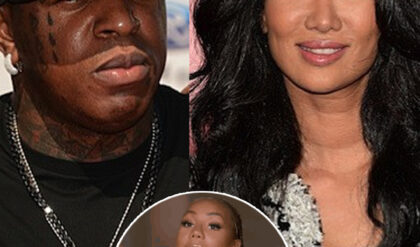Prince Edward’s recent decision to bid farewell to Buckingham Palace has taken the royal world by surprise, leaving many wondering what prompted this momentous choice.
As the youngest son of Queen Elizabeth II and Prince Philip, Edward has long been considered a figure who stands apart from his royal siblings, often preferring a quieter, more behind-the-scenes role in the monarchy.

Born on March 10, 1964, Edward was raised in the public eye but did not pursue the traditional path of a military career like his brothers, King Charles III and Prince Andrew. Instead, after graduating from Cambridge University with a degree in history, he worked in the arts and media.
He briefly worked with Andrew Lloyd Webber’s theater company before founding his own production company, Ardent Productions, in 1993. Despite some challenges, his ventures reflected his desire for independence and a distinct identity within the royal family.
In 1999, Edward married Sophie Reese-Jones, now the Duchess of Edinburgh, and the couple became prominent figures in royal life. As the Earl of Wessex, Edward took on various royal duties and later ascended to the title of Duke of Edinburgh after his father’s passing.
His role in the family expanded, but his low-key, steady demeanor stood in contrast to the headline-grabbing actions of other royals.

However, in a surprising move, Prince Edward recently announced his decision to step away from Buckingham Palace, marking a shift in his royal trajectory. His decision, though shocking, follows a pattern of Edward making unconventional choices that prioritize personal fulfillment. In 1986, at the age of 22, he resigned from the Royal Marines after four months of intense training.
Despite undergoing rigorous training to earn the prestigious Green Beret, Edward felt that the military life was not suited to his long-term aspirations. This decision was made after significant family discussions, including with his father, Prince Philip, and his brothers. Although his family did not support his choice, Edward remained firm in his decision.
Now, his decision to leave Buckingham Palace raises questions about his motivations. Reports suggest that he and Sophie plan to focus on their residence at Bagshot Park in Surrey, leading some to speculate that Edward’s departure is a move toward a more personal, family-oriented lifestyle.

It comes at a time when King Charles III is working to streamline the monarchy and redefine its role in modern Britain.
Edward’s departure, unlike Prince Harry’s more dramatic exit, is seen as a quieter transition rather than a complete break from royal life. He remains committed to his royal duties, including his work with the Duke of Edinburgh’s Award and his various patronages. However, his decision signals a shift in the monarchy’s approach, with an emphasis on adapting to contemporary expectations while respecting the individuality of its members.
As Prince Edward bids farewell to Buckingham Palace, his next steps will shape his legacy. The choice to step away from the public spotlight in favor of a quieter life reflects the challenges faced by modern royals, including media scrutiny, family tensions, and the pressures of maintaining royal duties. Edward’s decision to leave Buckingham Palace highlights the personal and public conflicts that come with royal life and suggests a desire for greater personal freedom.





